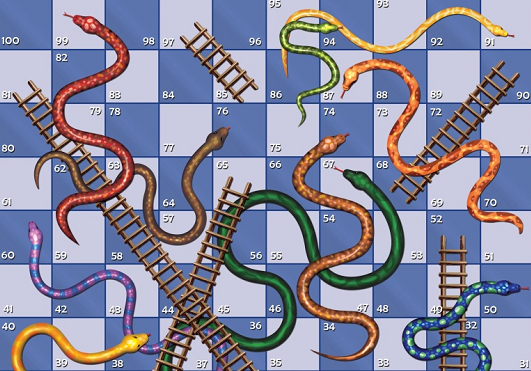
By Christopher Gee
You are in the third row of seats from the front in a stadium. The people in the front row stand to get a better view of the action, and quickly thereafter, those in the second row also stand up in order to see. You also stand to be able to watch the action, and soon, looking all around, you find everybody in that section of the stadium standing. The collective view of the action is largely as it was before, but now all are standing and expending more effort in enjoying the spectacle.
So it is with the education system today. Academic credentialism (defined as the excessive reliance on academic qualifications in employment or in ascertaining social status) has combined with our Singaporean kiasu nature to create a multitude of educational arms races in which families are driven to spend more and more time and money on private tutoring, buying homes within one- or two-kilometres of primary schools and other investments in our children’s education, all in the name of giving them a head-start in life. If tuition is received by some children in a class and their marks improve, others will feel that they need to follow until almost everyone is receiving tuition.
A Blackbox Research survey [1] published in July 2012 indicated 80% of Singaporeans believe tuition and enrichment programmes help their children do better in their education, and that 67% of parents have enrolled their children in tuition at some point in time.
By definition, there can only be 1 top pupil in a class, and only a quarter of a cohort can be in the top quartile. Places in a good school are scarce, and the number of eligible students in the Gifted Education Programme is restricted. This social scarcity created in these ways can spark contests in which families and students are thrown into intense competition that quickly escalate out of control, exacerbating stresses in the institution of the family and compounding social inequalities.
To see how an arms race can accentuate inequality, let’s go back to the stadium and see the impact of the people in the front row standing up for a better view. Shorter people in the rows behind would be unable to enjoy the view they had earlier when all were seated even if they were now to stand up, and what about small children and the disabled in wheelchairs?
What are we to do? Human nature is such that we are hard-wired into wanting the best for ourselves and our offspring. Desiring to better ourselves and our children’s lot is seen by all as a virtue, and this desire is the necessary fuel of a meritocratic system. To do anything to diminish this ethic would be to repudiate a key tenet in Singapore’s success in its rapid progress to developed country status: that of constant self-improvement.
Nevertheless, it is possible to identify the sources of social behaviour that lead to adverse outcomes such as costly educational arms races. Two are the most obvious: academic credentialism and a propensity to pick winners amongst our school-children.
Reversing the insidious creep of academic credentialism
Firstly, we must cast aside the many aspects of academic credentialism that have crept into society today. In practical terms, this means developing better and more numerous ways in which we as a society measure success and merit-worthiness. Having multiple pathways to success cannot just be defined as having various streams in secondary school or in tertiary education, but it must also mean radically different templates of achievement. Such multiple and varied pathways would also need to account for late-bloomers, or those who have different life course plans – say getting into work first and having a family before pursuing tertiary education.
This will also need to involve employers, who will need to go beyond the stereotypical fast-tracked, scholar-employee ideal in their hiring processes. It may even solve the paradox that many employers are seemingly facing in today’s full-employment Singapore – a shortage of appropriate candidates for jobs at a time when our universities are graduating record numbers of degree-holders.
Stop picking “winners”, especially at the earliest stages of education
Second, we should change the education system’s focus away from “picking winners” and towards learning, a love of learning that extends beyond entry into schooling-life and past one’s graduation day. Assessments should not be conducted to fill in the points of the cohorts’ bell curve, but more importantly to identify a student’s strengths to be built upon, and weaknesses to be overcome.
In trying to identify talent and gifted students, we create pockets of social scarcity, access to which are then desperately competed over in full-blooded ‘arms races’ by families seeking that head-start for their children. These ‘arms races’ are typically won by wealthier families, thus perpetuating inequality and reducing social mobility.
Specifically in Singapore’s context, fast track programmes at the primary school level such as the Gifted Education Programme should be abolished, whilst streaming should only be introduced once students have completed their foundation levels of education.
Let’s go back to the stadium one last time. The people standing in the front row now realise that not only are their feet aching, but the people in the rows behind are grumbling. They sit down, followed by those in the second row and so on. Soon all are seated once again, and all is well as is before. Can we expect the same in our schools?
Read Part 1 of this article here.
——————-
Notes:
[1]: You Know Anot? – Private Tuition in Singapore: A White Paper Release.
——————–
The writer is a Research Associate in the Demography and Family cluster at the Institute of Policy Studies. He is the father of three children, two of whom are in primary school.
For reposting or use of any part of this article and images, please contact the editor (editor@ipscommons.sg) for permissions.
